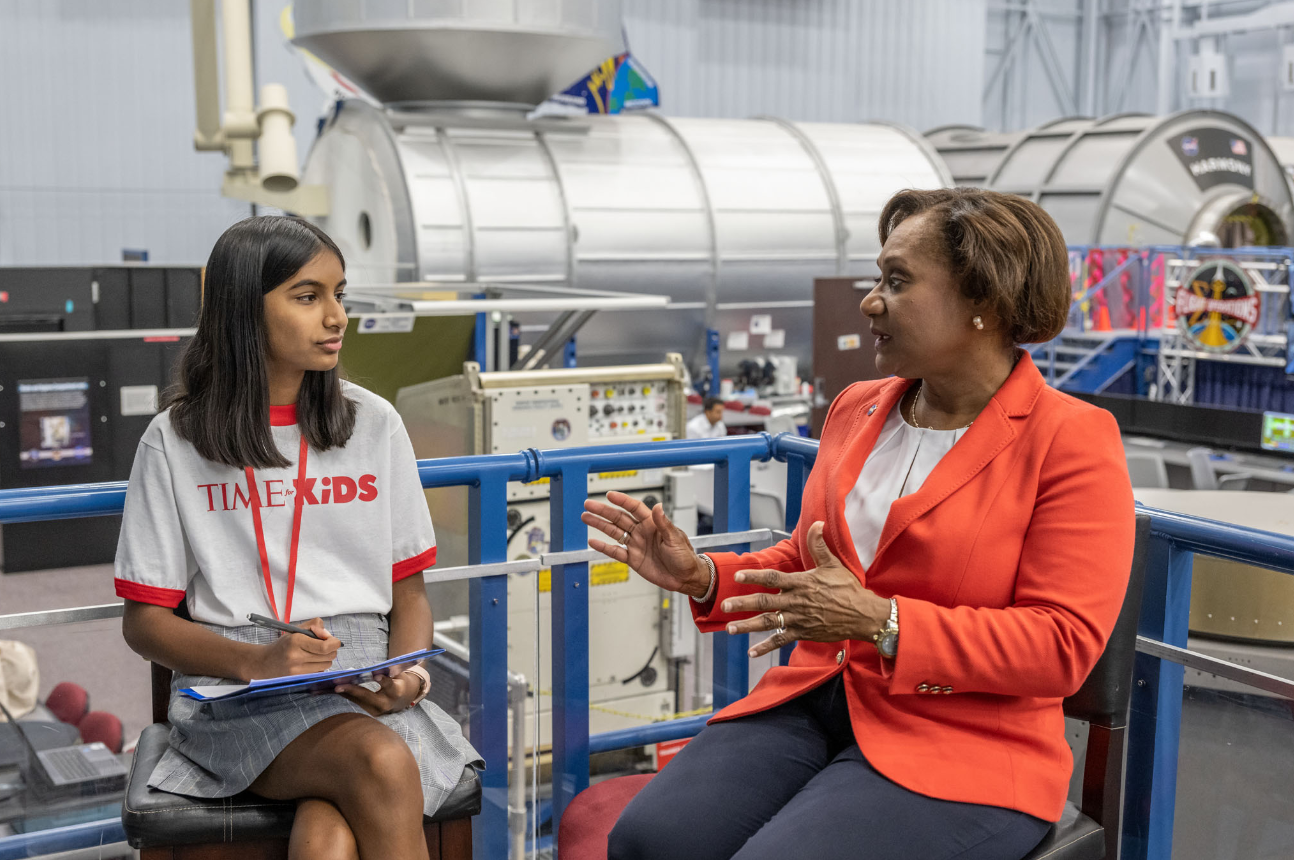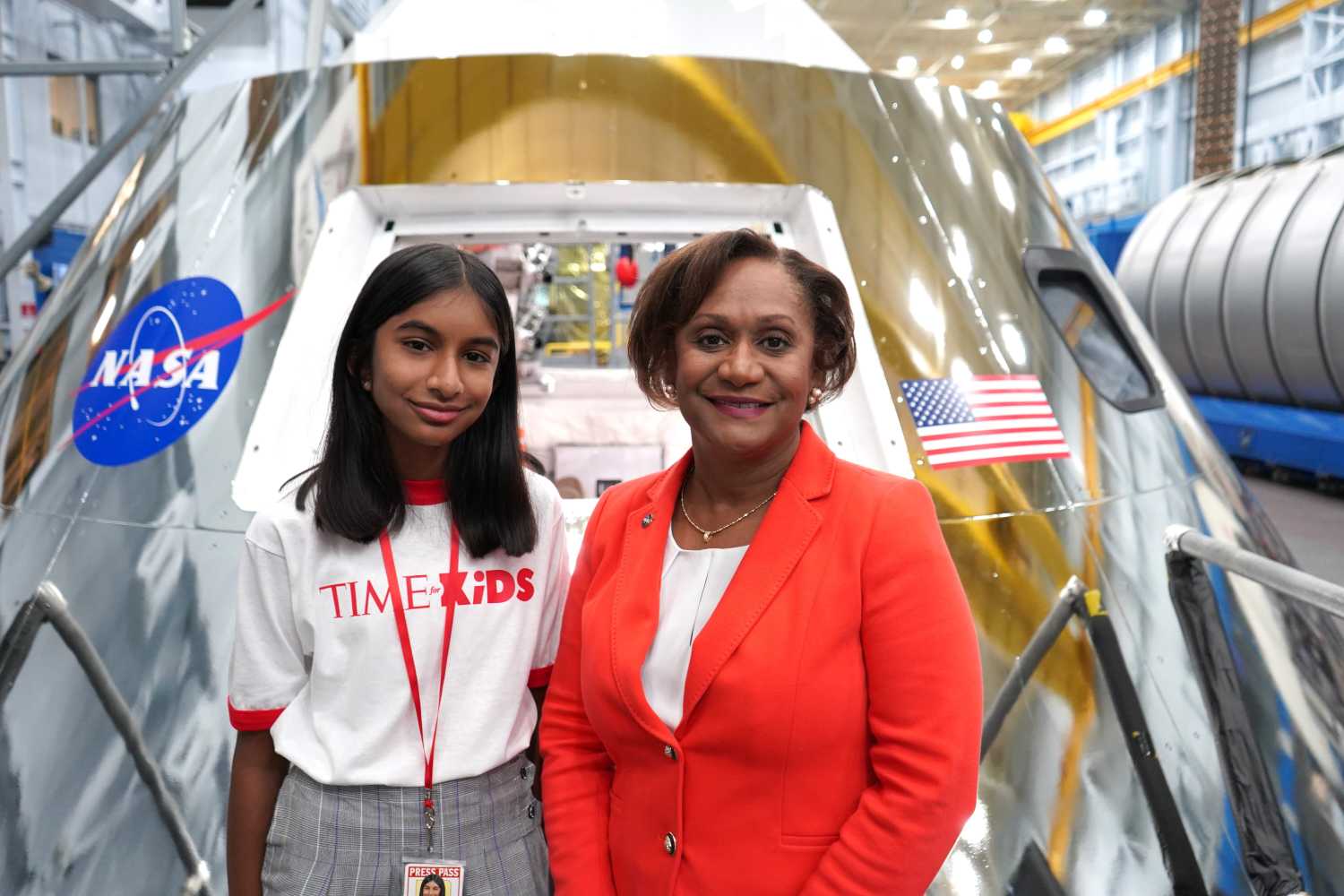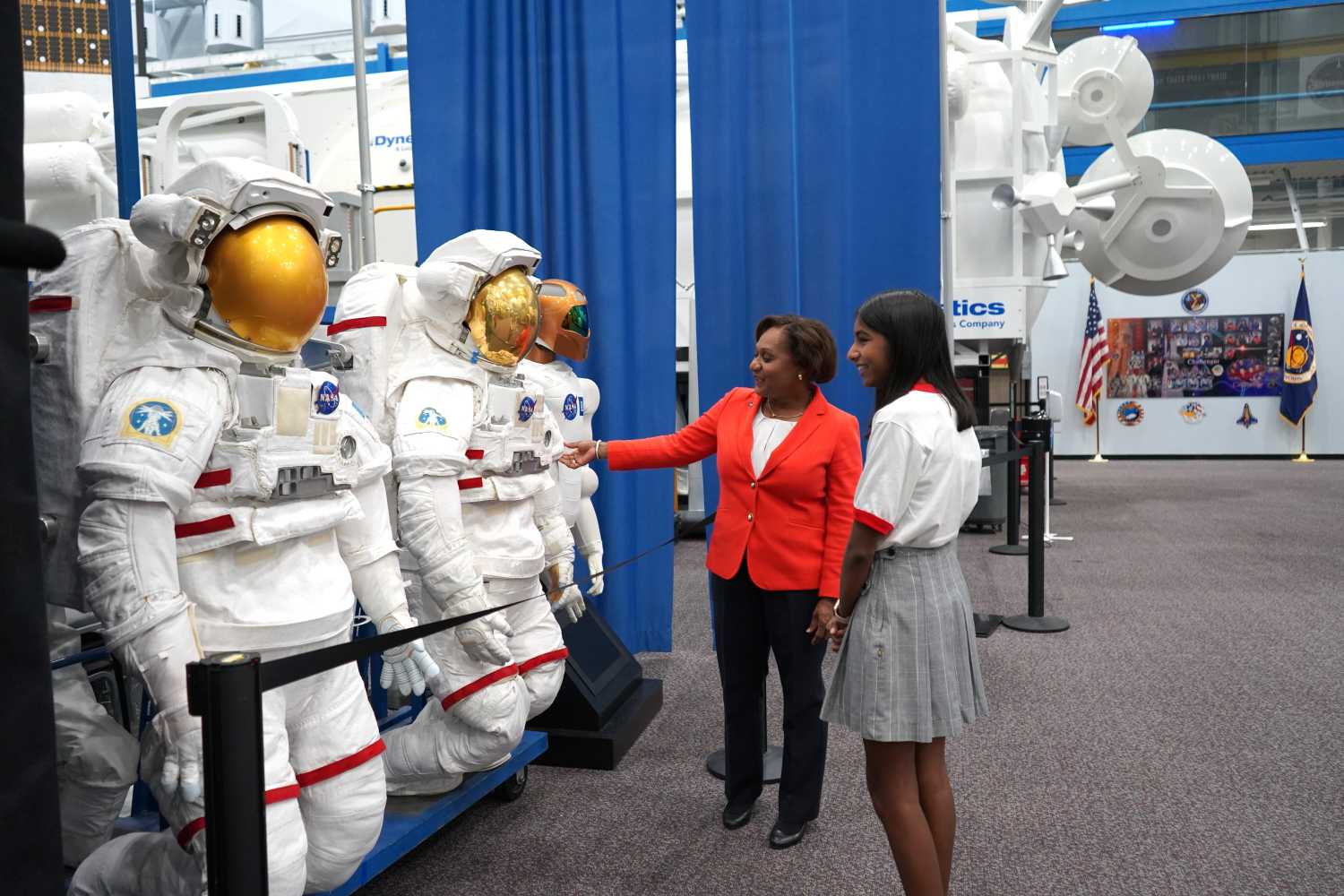My Chat with Vanessa E. Wyche

Shaivi Moparthi is a TFK Kid Reporter. She interviewed Vanessa E. Wyche, the director of NASA’s Johnson Space Center, in Houston, Texas.
What does it take to become an astronaut? There is no better person to ask than Vanessa E. Wyche, director of NASA’s Johnson Space Center, in Houston, Texas. Part of her job is to recruit and train astronauts for missions to the International Space Station (ISS), and for the Artemis program, which could take people to the moon and Mars.
“We look for people who can work well with others, because you will be in an enclosed environment for a long time,” Wyche says. But most of all, "We are looking for people who are curious and want to learn.”
As an aspiring scientist, I have always been curious about what it takes to work at NASA. So in October, I sat down with Wyche at the Johnson Space Center, home to America’s astronaut corps, Mission Control Center, and the ISS, Orion, and Gateway programs.

Wyche has worked at Johnson for more than 30 years. She started out as a project engineer, studying the effects of space on the human body. Then she moved on to the Space Shuttle Program, eventually becoming the flight manager and overseeing the shuttle missions that built the ISS. In 2016, she joined the exploration team and started planning missions to the moon and Mars. A couple of years later, she became the deputy director of the space center, and in 2021, she took up her current position. As the space center’s director, she oversees human spaceflight activities including the development and operation of spacecraft, the commercialization of low-Earth orbit, and the goal of landing the first woman on the moon’s surface.
Wyche says it was her parents who taught her to love learning and investigation. “They were both teachers, and they encouraged me to pursue my curiosities,” she says. “I did everything from sports to gymnastics, tap, jazz, and music. And I was a Girl Scout.”
That curiosity naturally led to an interest in science. “One Christmas, my brother got a chemistry set, and I was his apprentice,” Wyche recalls. “I would help him with his experiments.” Her father, who was a carpenter, enlisted her help in rewiring the family’s house. “What he taught my brother, he also taught me,” Wyche says. “That gave me the confidence that I could actually pursue a career in STEM.”
Wyche earned a Bachelor of Science in Engineering and a Master of Science in Bioengineering from Clemson University. She worked for the United States Food and Drug Administration, in Washington, D.C., then joined NASA in 1989.
In November, NASA began a new era in spaceflight, when it launched an uncrewed Artemis rocket toward the moon, from the Kennedy Space Center, in Cape Canaveral, Florida. This mission is sending a capsule around the moon and back. It’s a big test of the Artemis Program. “The first mission was to test out the spacecraft, to ensure our astronauts will be able to go and come back safely,” Wyche says. “The next mission will have humans on board, and will test out the system with them integrated into the loop. Then, at some point, “the next mission will be the landing mission."

NASA plans to land in locations on the moon where astronauts can do in situ resource utilization. For this project, that means taking a resource such as water, which is found on the moon, and turning it into oxygen. That would enable scientists to live on the moon’s surface over long periods of time. Their research, Wyche says, could teach us about the origins of our solar system.
Research that is currently being done on the ISS could produce benefits here on Earth. For example, scientists there are learning how to recycle water. That technology would be helpful on a planet where water is becoming increasingly scarce. And experiments on heart cells could lead to treatments for cancer.
Wyche says the trait required of prospective astronauts is the same one young people need for a career in the sciences: curiosity. “Go to science camps,” she advises, “and just feed your curiosity. Learn as much as you can, and continue pursuing your passion. You’ve got to just keep pushing. Go to college, get your degree, and then come be a part of the Artemis generation. We really need you guys."

